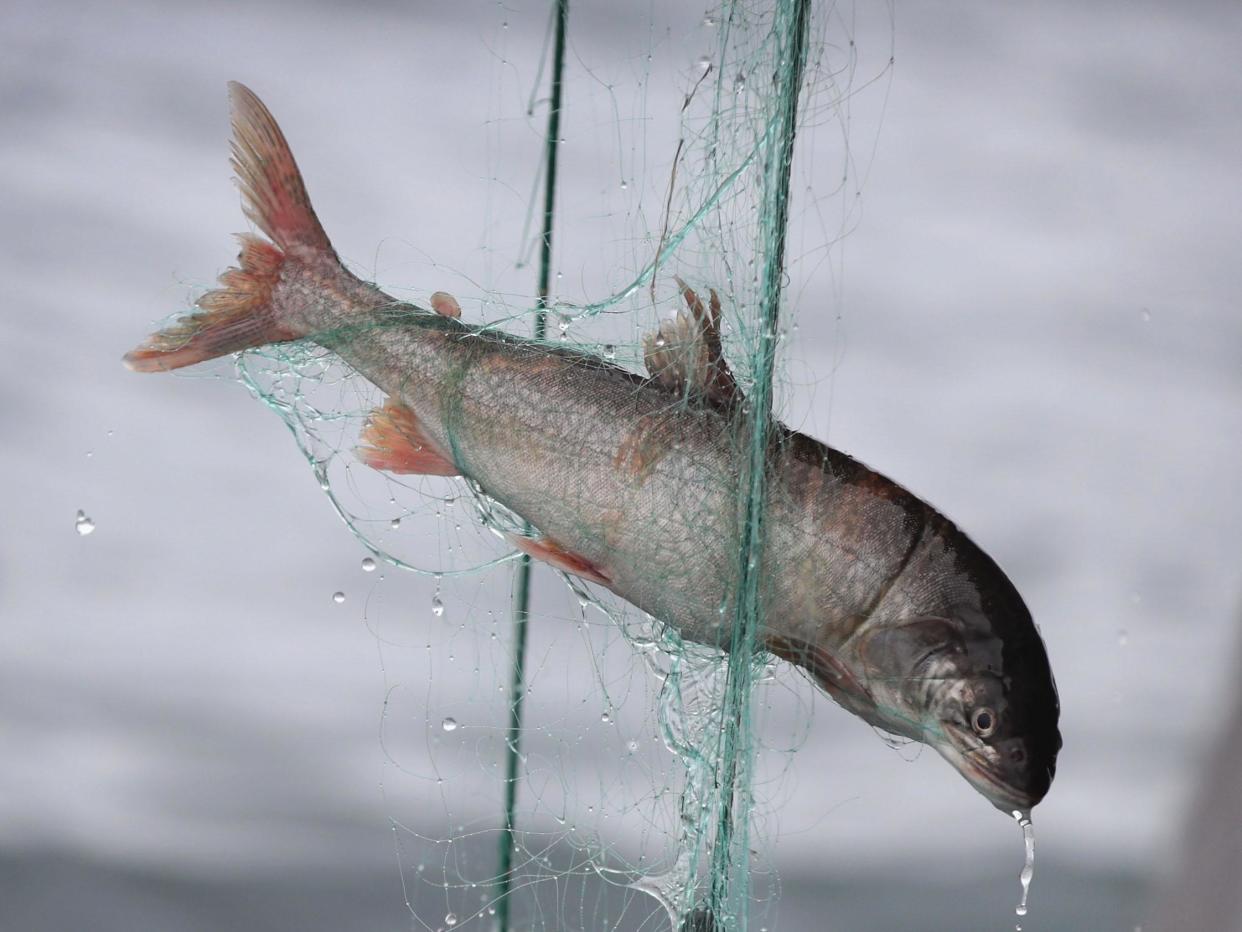We can all be part of the solution to illegal fishing – and help save marine life and people's livelihoods

One in every five fish caught around the world each year is thought to originate from illegal, unreported and unregulated (IUU) fishing. This is a loss of between 11m and 26m tonnes of fish each year representing an economic cost of $10bn to $23 billion annually.
Illegal fishing alone is the fourth most lucrative crime after drugs, human trafficking and illegal logging. It threatens the future of marine life, ocean health and the livelihoods of those who fish legitimately.
Later today, the UN’s Food and Agriculture Organisation will release the latest figures on the extent of IUU fishing. And although we expect it to show that progress has been made, much more needs to be done. Arguably it has never been harder to regulate fishing than during the current global pandemic that is affecting how every country around the world operates.
It’s a complicated topic that encompasses a broad range of scenarios from subsistence fishing in developing countries through to criminal activities. Not all unregulated or unreported fishing is criminal, so is it possible to incentivise these fisheries to become legitimate and more importantly sustainable?
Over the last four years I’ve been at the Marine Stewardship Council (MSC), an international non-profit that over the last two decades has helped establish and grow sustainable fishing through our ecolabel. Some 16 per cent of all catch is now MSC certified – meaning it meets our scientifically-based standard for certification. The MSC was created to drive real change for the health of our oceans, to improve fisheries sustainability and end practices like illegal fishing.
Illegal fishing is often linked to some of the most shocking practices. Just last month, 26 tonnes of fins from 38,500 endangered shark species were seized by Hong Kong customs officials. In March, a smuggler was found to have illegally trafficked $66 million worth of Endangered eels from London to Hong Kong.
And with Covid-19 social distancing measures meaning fewer active inspectors and observers monitoring fishing activities, there are concerns this could signal an opportunity for IUU fishing to increase. There are already reports of these conditions being exploited, with unscrupulous vessels already fishing unsustainable stocks tempted to engage in illegal activities.
Illegal fishing is an environmental problem even when it isn't morally wrong. Coastal communities who depend on the ocean for a source of protein often don’t have the resources to monitor the impact of their actions. Some fishers for example may use endangered species as bait or fish in vulnerable areas – despite the ocean being their lifeline.
Illegal fishing can mean breaking fishing laws, poaching, polluting, or ignoring marine protected areas. These actions can have devastating effects on marine life – causing species to suffer declines and sensitive habitats to become damaged. However, it’s often these small-scale fisheries that need better support to become sustainable.
This is because industrial vessels are typically highly regulated, making it harder for them to engage in IUU fishing. Many such vessels are tracked by mandatory systems kept in tamper-proof boxes. If the device is turned off or breaks, an alert is sent back to port authorities and they must return.
Other vessels can be tracked by a separate system they use to prevent shipping collisions. This data can be accessed by organisations trying to track potential IUU fishing, but it’s not mandatory for everyone and fishers can simply switch this off and ‘go silent’, making it hard to provide evidence of any illegal transhipping or fishing.
A new international treaty offers some hope in the fight against IUU fishing. The Port State Measures Agreement (PSMA) requires all port states to ensure foreign fishing vessels seeking entry to their ports are not engaging in illegal activity.
But we as consumers also have a very powerful tool and can also help join the fight.
By choosing certified, sustainable and traceable seafood, individuals can reward sustainable fishing practices.
Not only does the choice showcase to fishers there’s demand for certified as sustainable products, but it also helps fund small-scale fisheries to embark on their pathway to sustainability via our Ocean Stewardship Fund.
Once in the supply chain, it’s important that certified products are not mixed with seafood from non-verified fisheries or farms so they can always be traced back to its original source. Buyers in our supply chain can only purchase certified seafood from certified suppliers with the right legal documentation.
This is essential to combatting IUU fishing. If you can track where it’s from, you can have confidence it hasn’t come from an illegal supply.
By taking those few extra moments to check your seafood is coming from a sustainable source, you’re not only helping to combat IUU fishing but also support those that owe their livelihoods to the ocean to be more sustainable.
Dr Rohan Currey is the chief science & standards officer at the Marine Stewardship Council (MSC)
Read more
Seven charts that show the true scale of the UK coronavirus outbreak
‘They can blame it for everything’: What coronavirus means for Brexit
The Americans who think that coronavirus is a hoax
Do you need a face mask and where can you buy one?
UK lockdown: Can I see my family and friends under new rules?

